Literacy and formal education were illegal for African Americans in many states during the Civil War. Even following emancipation, when it became legal to learn to read and write publicly, there were often extreme consequences.
Regardless, Black people throughout the United States began to understand the only way they could discover what was being kept from them was to acquire literacy, and they’d stop at nothing to do so.
View Transcript
Kidada Williams: Previously, on Seizing Freedom:
Phillip A Bell: They have commenced reconstruction on disloyal principles.
Anonymous: You will take notice that we have determined to rid our community of negro-loving fanatics and philanthropic teachers of our former slaves.
Sarah Nash: Let them break me up, put me in jail, or do what they please with me, I say I am done serving them, by the help of God and the U.S. Army.
KW: Tommy Jones was nine years old when he was sold away from his family. For the next two years, Tommy toiled under a grueling workload that barely left him time to sleep…
Tommy Jones: I took care of the family horse, fetched the water from the spring, ran errands to my master’s store, cleaned the boots and shoes belonging to..the family and their visitors, swept the rooms, brought wood from the wharf on my head for the fires at the house and store.
KW: The 18th century formerly enslaved man turned abolitionist, Olaudah Equiano, said of slavery, “When you make a man a slave…you compel him to live with you in a state of war.”
TJ: From the first dawn of day till sometimes twelve at night, I could hardly find one moment’s time for rest.
KW: Winning war is about eliminating options. Removing your enemies’ possibilities until their only choice is surrender. And in the domestic war between slavers and the enslaved, a key strategy was eliminating the possibility of anything other than work.
TJ (echoing): I took care of the family horse…fetched water…ran errands…cleaned the boots…swept the rooms, brought wood…
KW: Isolation and exhaustion robbed Tommy of leisure. He was too fatigued to think, sleep, or dream up an escape. And he was cut off from his people, and the tools to fully know himself. It took a chance re-assignment for Tommy to learn just how much was being kept from him.
TJ: My mistress complained of me at length, that I was not so obedient as I ought to be, and so I was taken from the house into the store…Mr. Jones hired a white boy named James Dixon to come and enter as clerk, and stay till he was of age.
KW: James was a poor white boy about Tommy’s age. But James wasn’t subject to the same isolation and exhaustion: he spent part of each work day studying.
TJ: I saw him studying, and asked him to let me see his book. So he let me take it…and he answered very kindly many questions which I asked him about books and schools and learning.
James Dixon: A man who has learning can always find friends and get along very well in the world without having to work hard. But if you don’t got any learning, you’ll have to work hard for a poor living all your days.
TJ: This was all new to me…for days afterwards, an intense burning desire to learn to read and write took possession of my mind. The question which then took hold of my consciousness was, how to get a book to begin?
KW: Tommy learned from James that he would need a spelling book to start. So he hatched a plan to convince David Smith, a white printer for whom he bootblacked, to sell him a speller.
TJ: He looked at me in silence and with some close attention for some time, and asked me what I wanted. “I want to learn to read Mr. Smith. Can you help me?”
David Smith: No, Thomas, it wouldn’t answer for me to sell you a book to learn out of; you will only get yourself into trouble if you attempt it; and I advise you to get that foolish notion out of your head as quickly as you can.
KW: But Tommy wouldn’t be deterred so easily. David’s brother, Peter, kept a book and stationery store under the printing office. So Tommy went to Peter, but this time with a different strategy. When Peter asked Tommy why he wanted the book…
TJ: I told him that I wanted it for a white boy, who lived at my master’s house. That he had given me the money to get the speller, and asked me to call at the store and buy it.
KW: Peter handed him the book without question. Tommy handed over the money, thanked him and left.
TJ: I got out of the store, and looking around to see that no one observed me, I hid my book in my bosom, and hurried on to my work…I was conscious that a new era in my life was opening upon me…That consciousness at once awakened new thoughts, purposes, and new hopes—a new life. I was a slave; and I knew that the whole community was in league to keep me in ignorance…yet I longed to be free, and to be able to move the minds of other men by my thoughts. If I could learn to read and write, this learning might—nay, I really thought it would—point out to me the way to freedom.
KW: I’m Dr. Kidada Williams. This is Seizing Freedom. On today’s episode: education. We’re gonna track the explosion of literacy from pre-war enslavement to post-emancipation. We’ll see the way Black people hustled to read and write by any means, how they translated their lives through writing, led the charge for public school systems, and eventually leveraged their educations to catapult themselves out of slavery and into political power.
First, back to Tommy Jones. The print maker’s warning about the risk of learning to read was prescient…
David Smith (echoing): …you will only get yourself into trouble if you attempt it.
KW: When Tommy was growing up, North Carolina had strict anti-literacy policies for the enslaved. If he was caught with his book, he could have been whipped or maimed.
W.E.B. Du Bois: The white South believed an educated Negro to be a dangerous Negro. And they were not wholly wrong; for education among all kinds of men always has had an element of revolution.
KW: That revolutionary rush of wonder had taken hold of Tommy. He hunted down any means to learn to read. He sought the aid of a local freedman, and hid his book under whiskey barrels in a back room, studying by candlelight before his shifts.
TJ: I knew if my book was discovered that all was lost, and I felt prepared for any hazard or suffering.
KW: His enslaver, Mr. Jones, eventually became suspicious. And one early morning, while Tommy was studying, Jones came in unannounced.
TJ: I saw his shadow on the wall just in time to throw my book over in among the barrels before he could see what it was, although he saw I had thrown something quickly away.
KW: Jones ordered Tommy to roll away the barrels where he’d thrown his book.
TJ: This I did; but managed to keep the book slipping along so that he could not see it, as he stood in the doorway.
KW: Jones continued pressing and Tommy kept denying. Enraged, Jones pulled a heavy leather cow switch off the wall. Jones whipped Tommy three times, at thirty strokes each, pausing after every round and demanding to know what he threw. And each time Tommy told him, “nothing.”
TJ: I was determined to die, if I could possibly bear the pain, rather than give up my dear book.
KW: When Jones went to strike Tommy for a fourth round…
TJ: He saw the deep gashes he had already made, and the blood already flowing under his cruel infliction, and his stern purpose failed him.
KW: Seeing the damage, he stopped. In the day’s battle between him and Jones, Tommy came out the victor.
TJ: I got well of my mangled back, and my book was still left. This was my best, my constant friend.
KW: Tommy Jones, who had been sold 45 miles away from any family and friends, would rather have risked death than hand over a grade school primer. For him, literacy was far more than just the chance at freedom, it was a companion in the mind. A cache of possibility and source of comfort. And, like any precious thing, you had to guard it. Fight for it, if necessary.
Acquiring literacy—the ability to translate meaning from ordered marks—is like learning to be a spy. You look at a set of scribbles that are not what they mean, but are costumes for meaning. A masquerade of sounds disguised as shapes. And to unmask them, to find the sense in their arrangement, you have to crack a code, untangle what that blend of symbols stands in place of. That process could be a weapon.
Mattie Jackson: Mother and myself could read enough to make out the news in the papers. The Union soldiers took much delight in tossing a paper over the fence to us. It aggravated my mistress very much. My mother used to sit up nights and read to keep posted about the war.
KW: For the most part, Mattie Jackson and her mother Ellen deployed their literacy in secret. But as the war raged on, and tensions in the house grew, one conflict with their enslaver pushed Mattie to show her hand.
MJ: One evening, after I had attended to my usual duties, she, in a terrible rage, declared I should be punished that night. She went immediately and selected a switch. She placed it in the corner of the room to await the return of her husband for him to whip me. As I was not pleased with the idea of a whipping, I bent the switch in the shape of a W, which was the first letter of his name.
KW: The mistress was shocked into stunned silence. Mattie turned around and walked out before the husband could return…
Part of the allure of learning to read and write was that the benefits outweighed the risks. More than a weapon, or a tool for reaching freedom, literacy is a magician’s script, a spell to apparate a piece of living out of one body and into the next. And because that transmission is commonplace now, it’s easy to mistake as ordinary.
But for John Sella Martin—a young man enslaved in Georgia who had never been taught to use it—the sorcery of the written word was plain:
John Sella Martin: So, I was made the errand-boy of the gamblers who infested Columbus, and made this hotel their head-quarters. I learned, too, from seeing them reading and writing, that they could make paper and the little black marks on it talk…
For a long time I could not get it out of my head that the readers were talking to the paper, rather than the paper talking to them. When it became a reality to me, I made up my mind that I would accomplish the feat myself.
KW: John asked some of the white boys he played marbles with to teach him how to read. They told him it was against the law.
JSM: Now, the law was a sort of hobgoblin who had not stood very high in my opinion ever since he had torn my mother and sister from me, and me from my home…So, for a time, I abandoned the idea of learning to read.
KW: But John’s prowess at marbles attracted interest from less skilled players. When a white boy named Eaton Bass proposed teaming up, John had an idea.
JSM: I insisted on his putting in an equivalent in the way of service to me, which was to teach me the alphabet. He had been taught by his parents that he was not to teach a slave to read. But the infatuation of gaming was too strong for him, and the partnership was solemnly formed by his giving me one of his books as my own, and teaching me my first lesson. This was a great day for me.
When Eaton left me with the ABC ringing in my memory, I saw myself already writing a free-pass, and with it traveling to find my mother and sister; and then, with another that I should write, leading them to Canada.
KW: John’s dreams of taking his family to Canada didn’t come true. But he used those ABCs to become a Reverend, poet, orator, newspaper editor (alongside Frederick Douglass), and eventually the superintendent of a school district.
The spark that drove John, the sudden rush of possibility, is why learning to read and write was criminalized for the enslaved. Because part of what makes literacy arcane, is that it irritates. It introduces friction, becomes the chafe on the insurrectionist’s match. And if your seat of power is made of straw, the last thing you want to do is spark a flame.
David Walker: For Colored people to acquire learning in this country, makes tyrants quake and tremble on their sandy foundation, knowing that their infernal deeds of cruelty will be made known to the world.
KW: Tyrants quake and tremble because one of literacy’s first and greatest benefits is awareness—something John Quincy Adams figured out as a child.
John Quincy Adams: I often heard the white people say that they did not want the negro to learn to read and write. Then I felt satisfied that there was something more than learning to read and write that they did not want the negro to know.
KW: That same feeling motivated James Curry—who could read—to discover what, exactly, he wasn’t allowed to know.
James Curry: I used to go into the house and get down the great Bible and lie down in the piazza and read, taking care, however, to put it back before they returned. There I learned that it was contrary to the revealed will of God, that one man should hold another as a slave.
KW: Though the Bible was the most readily available reading material, African Americans found all kinds of sources for the knowledge white people kept from them. In 1863, a police officer walking through the streets of New Orleans stopped to pick up some stray papers lying in the gutter. It was a secret document, written by an enslaved man who had been teaching himself to read and write by copying parts of the U.S. Constitution and the Civil Code of Louisiana.
A Colored Man: We the people of the United States, in order to form a more perfect union, establish Justice, insure domestic tranquillity, provide for the common defence…
KW: The unnamed author interspersed his copying with his personal thoughts about the Civil War — thoughts he could put to paper after working tirelessly to translate the letters of the Constitution into meaning.
A Colored Man: …we will fight for our rights and liberty. We care nothing about the union — we have been in it slaves over 250 years. We have made the country and so far saved the union — and if we have to fight for our rights, let us fight.
KW: It was a very good thing the author didn’t sign his name, so the police couldn’t trace the illegal document back to him.
The second benefit of literacy is the power to manipulate your world. Susie King Taylor’s grandmother sent her to a secret school in Savannah, Georgia:
Susie King Taylor: We wrapped our books in paper to prevent the police or white persons from seeing them.
KW: There, she learned to read and write, and used it for a specific purpose:
SKT: I often wrote passes for my grandmother. For all colored persons, free or slaves, were compelled to have a pass; free colored people having a guardian in place of a master.
KW: Other children had relatives who could share their knowledge. John Washington started to learn to read from his mother before she was sold away. After that, he tried to teach himself to write so he could send her a letter — but struggled.
John M. Washington: My Uncle George, Mother’s brother, noticed me trying to copy the writing alphabet as shown in “Cowley’s Spelling Book”…So he asked me what I was trying to do. I replied, “I am trying to write.” He seized the pen; he wrote the following lines on a piece of wallpaper: “My Dear Mother, I take this opportunity to write you a few lines to let you know that I am well.” “Now,” said he, “When you can do that much you can write to your mother.” He was at best a poor writer, but the copy that he had just given me was as good as the best penmanship would have been.
KW: That simple line was a treasure—it both expanded and contracted John’s world, bringing his mother closer to him.
After emancipation, reading and writing were no longer criminalized. They could happen in the open and in collaboration. During the last years of the war, Black soldiers joined forces to write petitions to the Secretary of War and even President Lincoln. They protested the harsh treatment of their families, or demanded higher wages, or requested schools for their fellow soldiers:
John Sweeny: Sir, I have the honor to call your attention to the necessity of having a school for the benefit of our regiment. We have never had an institution of that sort and we stand deeply in need of instruction, the majority of us having been slaves. We wish to have some benefit of education to make of ourselves capable of business In the future.
KW: By writing to those in power, these soldiers forced authorities to reckon with African Americans’ equal claim to pen and paper, and rights. While emancipated literacy brought access and political capital, the desire to read and write was for more than that.
John Quincy Adams: What is better in man than a sagacious and good mind? What can we call more wretched than folly? What is more pleasing than literary ease? I cannot tell you how happy I feel when a day’s work is done and I can go to my home, sit down and take up the papers and read them for my own satisfaction and comfort.
KW: Education meant access to a bigger community, participation in society, and the ability to send editorials to newspapers to make your views public. Or, to author and broadcast your own story in an autobiography. For George Horton, who had been enslaved in North Carolina, the most compelling writing was found in poetry.
George Horton: Whenever I chanced to light on a piece of paper, so common to be lying about, I would pick it up in order to examine it whether it was written in that curious style or not. If it was not, unless some remarkable prose, I threw it aside; and if it was, I as carefully preserved it as I would a piece of money.
KW: Though Horton would eventually become one of the first Black men to publish a book in the South, he worked on his craft before he ever learned to write.
GH: I fell to work in my head, and composed several undigested pieces, which I retained in my mind, for I knew nothing about writing with a pen.
KW: George became famous for his poetry while he was enslaved and sold poems to white college boys for 25 cents a pop — many of which he composed while he was working in the fields.
GH: I have composed love pieces in verse for courtiers from all parts of the state:
The joy of meeting one so fair, Inspires the present stream of song
And acrostics on the names of many of the tip top belles of Virginia, South Carolina and Georgia.
A bonny belle, That few excel, And one with whom I few compare, Though out of sight so long.
Many of these poems I composed at the handle of the plough, and retained them in my head until I dictated, whilst one of the gentlemen would serve as my scribe.
KW: In 1878, D. Webster Davis—another renowned poet who had been born in slavery—took the stage at his class reunion.
D. Webster Davis: Old time with its cycle and swift onward play, For once has turned backward, we are children today; And the world with its conflicts, its battles and strife, Is forgotten in pleasures and mem’ries of life.
KW: The reunion celebrated graduates from the teacher training program at Richmond Colored Normal and High School. Davis was part of that first generation of Black southerners who could attend school freely, and his poem for the occasion reflected his pride.
DWD: My name is still cut on the seat by the door, I am trying to cut it much higher, you know, But I wonder if fame can e’er give the joy, I found at old Normal when I was a boy?
KW: After graduating, Davis taught in Richmond for more than 30 years. When Davis died in 1913, Richmond city schools closed, so students could attend his funeral.
DWD: By this hallowed elysium our tent is now spread, But soon to new duties, new paths we must tread, The world calls for heroes, our race calls for men, Unselfishness and true ‘ till bright heaven’s the end.
KW: Right from the start of Reconstruction, newly freed people—children and adults alike—flooded to schools. Sometimes the school was a church. Sometimes it was a teacher’s living room. Sometimes it was a patch of grass, and got canceled when it rained.
The Nationalist: The Civil War simply put down the insurrection of barbarism against civilization and opened the way for education, which is the real liberation. The sword may make the freedman, but only the truth makes the free man.
KW: The desire was strong, but attendance was intermittent. Students in rural places often had to take long periods of time away from lessons to put in crops and help their families make a living. There wasn’t a unified system to speak of. The question: “Who will teach the freedmen?” reverberated throughout the country. Whites in the North and South overwhelmingly responded: white missionaries. Freedpeople often had to make piecemeal deals with Northern benevolent organizations to get funding to build a school or to have a teacher sent south.
Jane Briggs Smith: My school-boys are wonderfully gallant and chivalric. They are always bringing me presents: sometimes a live chicken, a sweet-potato as big as a pumpkin, or a little paper of candy all stuck together by the temperature of the donor’s pocket.
Gertrude Allen: Today, I tried a new school. I like it very much, and have a very pleasant room and quite bright scholars, considering I can’t see calling the contrabands our equals. I am more opposed to that doctrine than ever.
KW: Arguably, the most famous white teachers were Lucy and Sarah Chase. During the war, the sisters left Massachusetts and headed south to work in refugee camps. After the war, they traveled wherever the Quaker Education Commission deemed they were needed. Both sisters were prolific writers to family and friends back home.
Lucy Chase: Dear home folks, I am rejoicing with the happy negro in his greed for letters. One word of instruction from a teacher brightens the face of the learner with shining content.
Sarah Chase: Last week I heard three colored boys examined in Latin. It was very interesting to see them, and find how thoroughly they understood what they had learned: they were truly promising boys—leaving out their hue.
KW: As they moved from place to place, the Chase sisters also exchanged letters with former students, who had been taught to use a popular—and proper—template to compose their letters:
LC: One: Mention the state of your health, and that of your friends. Two: Of your school and how you like it—of your studies—the progress you make in them—how you like each, and which the best—and why. Three: Use of these branches—and which the most useful. Four: Particulars.
Jordan Johnson: To my Dear teacher, Miss Lucy Chase…
Mr. Joseph Green: I take the opportunity of penning you a few lines to inform you of my health.
Elias T. Jefferson: All my classmates join me in remembrance to you and Miss Sarah. I hope these may find you enjoying good health.
JJ: I will tell you my studies:
David Barr: I go to school with Miss Gayle and am learning quite fast. I study 3rd Geography and 2nd Arithmetic…
S.L. Rafe: The Library is progressing rather better. I have added about a dozen books. We loan perhaps three or four in a week.
DB: We have not forgotten 2 times 1 are 2 and 5 times 5 are 25.
JJ: We are going to a singing school! We are going to have a concert the 6th of July.
DB: …and I wish that you could attend. The Colored people are very anxious for you all to come back.
ETJ: We can never forget those pleasant evenings that were so kindly devoted to our improvement.
DB: …nor have I forgotten that pretty little speller that you gave me before you went away.
ETJ: I hope that we will be able to see each other again in this life and if not, I hope we may in heaven.
JJ: I will bring my letter to a close. Your true friend, Jordan Johnson.
ETJ: Elias T. Jefferson.
DB: David Barr.
SLR: S.L. Rafe.
KW: These letters show a delicate balance between self-expression and conformity. Jordan Johnson took the time to repeatedly write the name of a schoolmate who passed away at the bottom of his letter. S.L. Rafe included some “particulars” of Klan violence that raged throughout his town. But details of personal experiences like that were acceptable only in the context of this socially-approved writing format.
While it’s likely that the Chase sisters were moved by the letters, there isn’t any evidence that the contents of the letters changed, or challenged their worldviews. To be clear: White mission teachers didn’t come south to radicalize freedpeople so they could more fully participate in political life; they campaigned to mold freedpeople into “good Christians.”
LC: The colored people easily assume the responsibilities, proprieties, and graces of civilized life. I fancy they see the moral significance of things quite as readily as white people.
SC: Oh, these are glorious days! And I thank God that I live in them. I feel that I am witnessing the birth of a great Nation.
KW: The pedagogy that white missionaries used, reflected their desire to reconstruct the nation — to make it one without slavery, of course. But not necessarily one of equality. That tension between the aims of white instructors and their toll on Black students, was at play in classrooms across the South. Famously in the case of the Fisk Jubilee Singers…
(excerpt of song from Jubilee Singers)
KW: Fisk University in Nashville, Tennessee, was started in an abandoned army barracks. Like many post-war schools that became HBCUs, Fisk was named after the Union officer who helped raise money for its founding. Its first crop of pupils ranged in age from 7 to 70, but as its origins in a run-down bunk house might suggest, it was seriously under-funded.
Ella Sheppard: Many of us shivered through that first winter with not an inch of flannel upon our bodies. In spite of our poverty and hardships we were a jolly set of girls, and when we had a chance romped and played with all the abandon of children.
KW: That’s Ella Sheppard, who would go on to become one of Fisk’s most famous students. In the beginning, though, she had only had a little education—including some music lessons.
ES: I had exceptional musical advantages, then very rare for colored girls in the South. We were especially fond of music and gladly gave half of our noon hour and all spare time to study under Mr. George L. White. We made rapid progress, and soon began to help our school by going Fridays and Saturdays to neighboring towns to give concerts.
KW: Three years into her studies, the University was in dire straits. There was no money for food, and the American Missionary Association decided to close the school.
ES: Mr. White proposed to take a company of students to the North to sing for the money… He called for volunteers from his singing class. He selected eleven voices. Taking every cent he had, all the school treasury could spare, and all he could borrow, Mr. White started, October 6, 1871, with his little band of singers to sing the money out of the hearts and pockets of the people.
KW: They named themselves The Jubilee Singers. Initially, they sang mostly choral standards—what Ella called “white man’s music”—and songs that were familiar to audiences up north but weren’t that popular. When the group sang old field hollers amongst themselves on a balcony, people listening from another room became enrapt. They asked the singers to perform more of these “spirituals.”
ES: The slave songs were never used by us in public. They were associated with slavery and the dark past, and represented things to be forgotten. Then, too, they were sacred to our parents who used them in their religious worship…But the demand of the public changed this order. Soon the land rang with our slave songs.
KW: Those songs, which their ancestors had sung for generations in the hot Southern fields, or in the quiet of their own cabins during prayer, now echoed across the country. The Jubilee Singers soon earned enough to save the University. They kept touring and eventually brought home $150,000 for the school.
But their story wasn’t without tension. George White, the white University treasurer who started the singing group, worked the singers tirelessly. Ella herself was often sick, and compared White’s treatment of the group to that of an overseer. Which was no small claim, given that 9 of the 11 singers were born enslaved.
As early as 1865, Robert Hamilton, editor of the Weekly Anglo-African, wrote an editorial outlining his concerns about harmful types of teaching. He argued that if teachers—white or Black—were trained in white supremacy, they shouldn’t have access to the minds of newly freed people.
Robert Hamilton: They have kindness of heart enough to regard the freed people as “poor unfortunate creatures,” for whom something must be done; but in the main question of the manhood of the black man, they are not sound. They hold to the opinion of the inferiority of our race. Such persons should not seek or desire to be teachers among us—they cannot do us good.
KW: Northern and Southern whites who thought of freedpeople as “poor unfortunate creatures” were often shocked by how quickly they learned to read and write. Reports sent to the Freedmen’s Bureau and the American Missionary Association were full of “delight” at how rapidly newly freed students progressed. For better or worse, they argued that such high standards of learning deserved more funding and tried to raise awareness, and money for the schools they supported.
Robert Hamilton’s concern proved apt. Even in the case of Black mission teachers like Charlotte Forten, who traveled to the Sea Islands in South Carolina in 1862. She also expressed surprise at the intelligence of her students. At times, her impressions had the reductive scheme of an anthropologist.
Charlotte Forten: The negroes here rejoice in their new-found freedom. It does me good to see how jubilant they are over the downfall of their “secesh” masters. Another trait that I have noticed is their natural courtesy of manner. There is nothing cringing about it, but it seems inborn, and one might almost say elegant.
In the evenings, the children frequently sing and shout for us. These “shouts” are very strange—in truth, almost indescribable. The children form a ring and move around in a kind of shuffling dance, singing all the time. It is probable that it is the barbarous expression of religion, handed down to them from their African ancestors, and destined to pass away under the influence of Christian teachings.
KW: Charlotte Forten found her students in the Sea Islands foreign. For their part, the Sea Islanders were wary of her and her excitement to exert the “influence of Christian teachings.”
RH: There is a type of education which, if introduced at the South, will train our race in mental subserviency for fifty years to come. This would be a disaster. It would be exchanging physical for intellectual bondage. We claim no superiority over the whites, and we admit of no inferiority. We hold that nature has made all men alike. This is the true standard. Anything lower than this is degrading.
KW: But Charlotte was an influential woman who wanted to use her knowledge and mobility for the good of all. She had the ear of the Freedmen’s Bureau’s superintendent of education in South Carolina, and wrote to him even after she moved back to Boston trying to secure more funding for her students in the South.
CF: I am trying to add up the whole number of scholars in our schools for this year, in order to print a list in the Record as soon as possible. A happy Christmas to you in barbarous South Carolina! Very truly, C. L. Forten
RH: The educational system must be constructed or organized upon our basis—the equality of the race. No teacher or preacher, be they white or colored, should be entrusted with the education of freed people or their children, who is not prepared to teach and vindicate this doctrine.
KW: Firmly grounded in paternalism, mission organizations generally assigned teachers to schools without local input or consent. But Black parents and families resisted this. In New Orleans, parent Margaret Adams wrote a letter to the AMA, asserting her right to weigh in on the decision of who would teach her children. She spoke for her fellow parents as to which teacher they prefered.
Margaret Adams: I take this opportunity addressing you these few lines and hope that the receipt of the answer of this letter that the hearts of the colored people in general may be someone relieved of a burden that we have been carrying. Dr. Hubbs wants to remove from us our teacher—one who takes every interest in instructing the day and evening school. The colored people of this city are greatly devoted to him and love him much for the kindness and delight he takes in instructing us.
KW: Though it’s unclear how Margaret learned to write, she definitely knew how to speak the AMA’s language. She not only appealed to their sympathies, but suggested that her choice of teacher would bring the school more funding (and therefore more “success”).
MA: All of us colored citizens and pupils that visit Mr. Tambling’s school unite our hearts together in asking you to grant us this. We believe that by his remaining with us, some of the wealthiest colored people of this city will send their children to his school.
KW: Margaret Adams…sort of won her case. Though Dr. Hubbs was removed from the school under charges of corruption, he fired Mr. Tambling before he left—probably out of spite.
More often than not, newly freed people never got a say in who would teach their children in mission schools, but many pushed for African American teachers from the South. Some local Black teachers, who had been teaching secretly all along, could now formalize their schools and openly charge tuition. After working for the Union during the war and teaching refugees in army camps, Susie King Taylor moved back to Savannah to continue her work.
SKT: After getting settled, I opened a school at my home on Oglethorpe Avenue, as there was not any public school for negro children. I had twenty children at my school and received one dollar a month for each pupil.
KW: She had to compete with the missionaries, though.
SKT: I taught almost a year, when the Beach Institute opened, which took a number of my scholars, as this was a free school. I opened a school in Liberty County and taught there one year; but country life did not agree with me, so I returned to the city and found that the free school had taken all my former pupils. So I opened a night school where I taught a number of adults.
KW: Some communities drew on local teachers because the Freedmen’s Bureau and mission organizations were unresponsive. In 1865 in Greensboro, Georgia, about twenty freedpeople came together to form a board of trustees that would pay for a school and a teacher for their community. Led by Abram Colby, they hired a local Black man…
Abram Colby: …on account of him being disabled with an amputated leg and we felt it our duty to help him all that we could…
KW: …until the Freedmen’s Bureau could send a qualified replacement.
AC: But we will be soon over-run with pupils and will have more than he can properly contend with.
KW: Colby was desperate to get as many qualified teachers for his community as possible—he knew the value of educating the youth. Though Colby composed regular reports about the state of affairs in Greensboro, he couldn’t read or write himself.
AC: I have a son I sent to school when he was small. I make him read all my letters and do all my writing. I keep him with me all the time.
KW: Colby was a fantastic speaker. He was elected to the Georgia House of Representatives in 1866 and his son accompanied him to Congress as his secretary. Men like Elijah Marrs escaped to fight with the Union during the war, and came back home to teach:
Elijah Marrs: I was a perfect curiosity to the white people of Simpsonville, simply because I was the first colored school-teacher they had ever seen, and yet I was no stranger to them, for just three years from the time I left Simpsonville, a slave, to join the United States Army, I returned a free man and a school teacher.
KW: A board of trustees built and funded a school for Elijah to run. His high salary was supplemented by tuition from his students. That kind of setup was rare, though. As more and more students flooded in, administrators across the country called for more Black “Normal” schools—schools that would bring in local students at a young age and, after graduation, train them to become teachers in their own right so that they could get jobs in nearby public schools.
But Black teachers—Northern and Southern—were frequently shunted into rural areas, where there was a “great need” but where white teachers refused to go. There, Black teachers like Edmonia Highgate received less pay for more dangerous work. Edmonia was born in New York and had been the principal at a high school in Binghamton. In 1864, the AMA sent her to teach in Louisiana.
Edmonia Highgate: There has been much opposition to the School. Twice I have been shot at in my room. My night scholars have been shot but none killed. The nearest military protection is two hundred miles distant at New Orleans. Even the Freedmen’s Bureau agent has been absent for near a month. But I trust fearlessly in God and am safe.
KW: While Edmonia steeled herself against gunfire in Louisiana, Elijah Marrs was doing the same in Kentucky. Kidnapping, assault, whipping and home invasion were common and constant threats:
EM: While in Lagrange, sitting at the fireside of Elder W. Lewis one beautiful fall night, we heard the windows of the house broken in and a general uproar. The KKK was upon us. I told the women to get behind the chimney for safety. The irons were hot upon the stove, and I used them freely in repelling the assault. Mr. Roberts’ father secured a pistol and would have made short work of our assailants had it been loaded. The KKK did not know this, however, for when they saw it, they fled.
KW: One of the most common attacks wasn’t on teachers but on schools themselves, which were usually wooden and incredibly flammable, and a favorite target of white supremacists. Sometimes that backlash worked—teachers moved on or schools stayed closed. Often, it only resulted in minor setbacks.
In January of 1866, freedpeople built a schoolhouse in Virginia staffed by a white Quaker teacher. Just three months later, it was set alight and burned to the ground. The next morning, 45 men sent for the teacher—calling her to a meeting in the very ashes of the schoolhouse. They told her:
Anonymous: If you stay with us, we will build you a larger and better school house, of lumber so green that it cannot burn. We’ll keep you supplied with green schoolhouses as long as you will stay.
KW: While they built the new school, they held classes in a pine grove. A month later, the new building opened with 150 students in attendance. After numerous attempts on his life, teaching for different schools in different towns across Kentucky, Elijah Marrs…
EM: …called the colored men together and organized a society for self-protection, calling ourselves the Loyal League. Of this society I was secretary, and we were always in readiness for any duty. For three years I slept with a pistol under my head, an Enfield rifle at my side, and a corn knife at the door, but I never had occasion to use them.
KW: The most virulent and melodramatic of the angry white Southerners wrote editorials, like this one from the Richmond Times Dispatch, making white Virginians out to be victims of Black success:
Richmond Times Dispatch: It is difficult to realize the situation we have reached in the South. The mind is stupefied at the initiation of negro domination. It is a waking nightmare.
KW: “Negro Domination” was a fear for white Southerners regardless of class. Though it may have been felt more acutely by white people who lived in poverty, who also often couldn’t read or write.
Jane Briggs Smith, a colleague of the Chase sisters, received a visit from just such a man. A white officer who had served as head of an all-Black regiment. He was incensed over the strides in Black people’s education, as he himself couldn’t yet read or write. The man rambled on, saying that the North was being too one-sided in their educational efforts in the South. They made “a great fuss,” he said, about educating Black children but didn’t seem to care at all about the white ones.
Jane Briggs Smith: “Why,” said he, “In ten years more the Blacks will be the educated class at this rate.” We could not help laughing at his evident concern, and told him that the whites were at perfect liberty to send their children to our schools if they wished; that our instructions were to make no difference whatever on account of color. Well, he said, that was virtually excluding them, for of course no white man would send his children to the same school where Black parents sent theirs! We told him that was their own fault…thus ended the discussion, very much to our amusement.
Probably he had said what he had heard, for he is one of those men who could embrace almost any opinion likely to make him popular. The idea of the Southerners standing with their hands in their pockets (as they usually do) and whimpering because the blacks are going to be best educated! I don’t wonder though. Nobody can be so degraded or so lost in ignorance as those “mean whites.”
KW: Some white people’s pathological need to hinder Black people’s education, regardless of the cost, be it to freedpeople or white people’s own children, wasn’t exclusive to the Deep South. Even in states like Iowa, freedpeople faced push-back to their advancement.
Alexander and Catherine Clark lived in Muscatine, Iowa, and sent their 12 year-old daughter, Susan, to an African Methodist Episcopal church school. But in the fall of 1867, the Clarks decided to enroll her in the local public school. It was closer to home, better funded—in part through their taxes—and offered special courses. It was also all-white.
The administrators—and the school board—refused to admit Susan. The Clarks fought this decision in court, arguing that they wanted to send their daughter to the best school, closest to their home.
Alexander Clark: My personal object is that my children attend where they can receive the largest and best advantages of learning. The AME school is nearly a mile from many of the small colored children, keeping more than a third of them from school. The white schools have prepared and qualified pupils by the hundred for the high school; the colored school has never prepared or qualified one that could pass an examination for any class.
KW: In 1868, their case went to the Iowa Supreme Court, which ruled in the Clarks’ favor not because of residency, but the equal rights of citizens. Justice Chester Cole wrote:
Justice Chester Cole: In view of the principle of equal rights to all, upon which our government was founded…Requiring black students to attend a separate school violates the law which expressly gives the same rights to all the youths. The board cannot deny a youth admission to any particular school because of his or her nationality, religion, color, clothing or the like.
KW: Justice Cole also spoke to the idea of an integrated public school as one where students not only learn to be literate of the page, but literate of the world, too. In his mind, racial segregation was a tool of white supremacy, a “badge of slavery,” and separate would always mean unequal.
The Court’s decision was a matter of equity, but also a matter of lucky timing in that the judges on the bench were progressive Republicans. As the white conservative backlash against Radical Reconstruction swept through the nation, the Clark case passed into obscurity. For the Clark family, though, the decision secured their educational future. Soon, schools across Iowa were open to all. Susan Clark graduated from the local integrated high school. So did her younger brother, Alexander, Jr.
As was often the case during Reconstruction, victories like this one came with a price. The Clark’s house almost burned to the ground and, while no one was ever prosecuted, they knew it had been arson. Though the family made it out with some of their belongings and built a new house shortly after, Catherine Clark suffered lung damage, and died before she could see her son become the first Black graduate from the law school at the University of Iowa.
Farther south from Iowa, state legislatures would soon have no choice but to fund public schools for all children. In order to gain re-admittance to the U.S., formerly Confederate states were now required to amend and ratify their constitutions and expand civil rights. In anticipation of new laws and standards, African American leaders gathered in “Colored Conventions” to collect their dreams and draw up demands. From DC to Georgia, education was a top priority.
Isaac Myers: We regard education as one of the greatest blessings that the human family enjoys.
J.M. Langston: Our mottoes are liberty and labor, enfranchisement and education! The spelling book and the hoe, the hammer and the vote, the opportunity to work and to rise, a place on which to stand, and to be and to do, we ask for ourselves and children.
Speaker 1: Therefore it is essentially necessary to the rapid and permanent development of the interests of the nation that there shall be a liberal free school system enacted by the Legislatures of the several States for the benefit of all the inhabitants thereof.
KW: Of course, the demand for public school would have to pass through the gauntlet of state-wide conventions, amendment drafts, and constitutional ratification. In North Carolina, former Union spy and community leader Abraham Galloway—who himself could barely read or write—was one of the delegates that approved the state’s new educational provisions:
Abraham Galloway: We propose to “level upwards,” to give to every child, as far as the State can, an opportunity to develop to the fullest extent, all his intellectual gifts. So noble an effort needs no vindication. This Constitution provides for a University and for free public schools for all the children of the State.
KW: Opposition was rampant in every Southern state. But no matter what form that opposition took, it ultimately failed. Between 1866 and 1870, state Constitutional articles were ratified that created public school systems, established teaching and agricultural schools—and pathways to funding them.
Next time on Seizing Freedom, I speak with Dr. Hilary Green about how African Americans commemorated the Civil War during Reconstruction, and what they taught their children about it.
Voice Actors
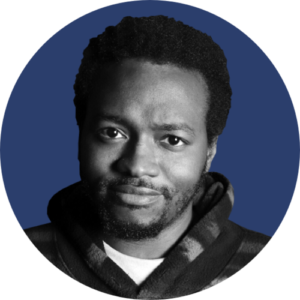
Andre Giles
Voice of James Curry

Candice Holley
Voice of Ella Sheppard, Edmonia Highgate
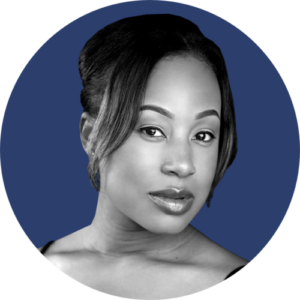
Chiquita Melvin
Voice of Mattie Jackson, Margaret Adams

Conrad Haynes
Voice of John Sella Martin, George Horton, Jordan Johnson, J.M. Langston

Constance Swain
Voice of Charlotte Forten

Frank Harrison, Jr.
Voice of David Walker, John Sweeny, S.L. Rafe

Gavin Wright
Voice of David Smith, Richmond Times Dispatch
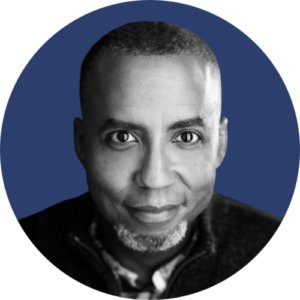
James J. Johnson
Voice of A Colored Man, Mr. Joseph Green, Robert Hamilton, Alexander Clark
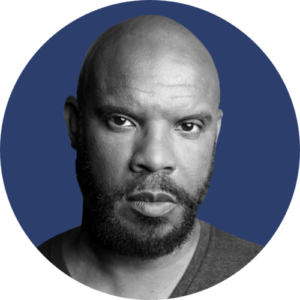
Jefferson A. Russell
Voice of John Quincy Adams, D. Webster Davis, Elias T. Jefferson, Anonymous, Speaker 1
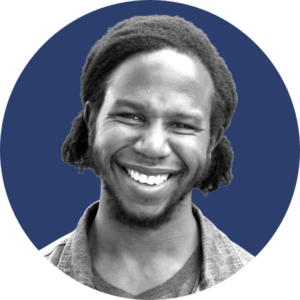
Joshua Moore
Voice of Abraham Galloway

June Jones
Voice of James Dixon

Rachel Dilliplane
Voice of Jane Briggs Smith, Sarah Chase
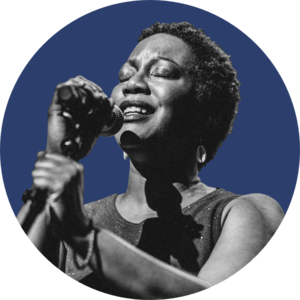
Richelle Claiborne
Voice of Susie King Taylor
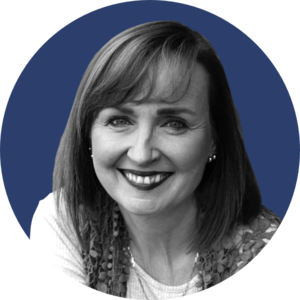
Terry Menefee Gau
Voice of Gertrude Allen, Lucy Chase

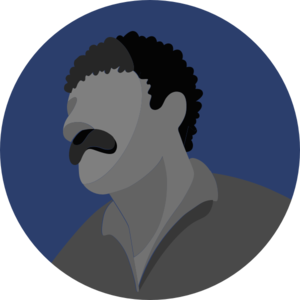
William Barnett
Voice of W.E.B Du Bois, John M. Washington, The Nationalist, David Barr, Abram Colby, Elijah Marrs, Isaac Myers

Xavier Taylor
Voice of Tommy Jones
Episode Resources
The following resources were utilized in the research and creation of this episode:
- Barnas Sears – Education: an address delivered to the Constitutional Convention of the state of Virginia: Thursday, January 23, 1868
- Carl Schurz – Report on the Condition of the South
- Charlotte Forten – Life on the Sea Islands (Part One)
- Christoper Hager – Word by Word: Emancipation and the Act of Writing
- Colored Conventions Project Digital Records – Proceedings of the Colored National Labor Convention Held In Washington, D.C., 1869
- D. Webster Davis – Idle Moments: Containing ‘Emancipation’ and Other Poems
- David Brodnax – Breathing the Freedom’s Air: The African American Struggle for Equal Citizenship in Iowa, 1830-1900
- David W. Blight – A Slave No More: Two Men Who Escaped From Freedom
- David Walker – Walker’s Appeal, in Four Articles; Together with a Preamble, to the Coloured Citizens of the World, but in Particular, and Very Expressly, to Those of the United States of America, Written in Boston, State of Massachusetts, September 28, 1829
- Dorothy Sterling – We Are Your Sisters: Black Women in the Nineteenth Century
- Earle H. West – The Harris Brothers: Black Northern Teachers in the Reconstruction South
- Elijah Marrs – Life and History of the Rev. Elijah P. Marrs, First Pastor of Beargrass Baptist Church, and Author
- Freedmen and Southern Society Project – Black Military Experience
- George Horton – The Poetical Works of George M. Horton, The Colored Bard of North Carolina, To Which is Prefixed The Life of the Author, Written by Himself
- George Washington Fields & Kevin M. Clermont – The Indomitable George Washington Fields: From Slave to Attorney
- Heather Andrea Williams – Self-Taught: African American Education in Slavery and Freedom
- Hilary Green – Educational Reconstruction: African American Schools in the Urban South, 1865-1890
- James Curry – Narrative of James Curry, A Fugitive Slave
- James L. Smith – Autobiography of James L. Smith: Including, Also, Reminiscences of Slave Life, Recollections of the War, Education of Freedmen, Causes of the Exodus, etc.
- John Quincy Adams – Narrative of the Life of John Quincy Adams, When in Slavery, and Now as a Freeman
- John W. Blassingame (Editor) – Slave Testimony: Two Centuries of Letters, Speeches, Interviews, and Autobiographies
- Lucy & Sarah Chase, Jane Briggs, Gertrude Allen, Jordan Johnson, David Barr, Elias T. Jefferson, S.L. Rafe – Letters to and from Freedmen’s Teachers
- Making of America Digital Library – Report of the Joint Select Committee Appointed To Inquire Into the Condition of Affairs in the Late Insurrectionary States
- Mattie Jackson – The Story of Mattie J. Jackson: Her Parentage, Experience of Eighteen Years in Slavery, Incidents During the War, Her Escape from Slavery: A True Story
- Stephen J. Frese – From Emancipation to Equality: Alexander Clark’s Stand for Civil Rights in Iowa
- Susie King Taylor – Reminiscences of My Life in Camp with the 33d United States Colored Troops (Late 1st S. C. Volunteers)
- Thomas Jones – The Experience of Thomas H. Jones, Who Was a Slave for Forty-Three Years



